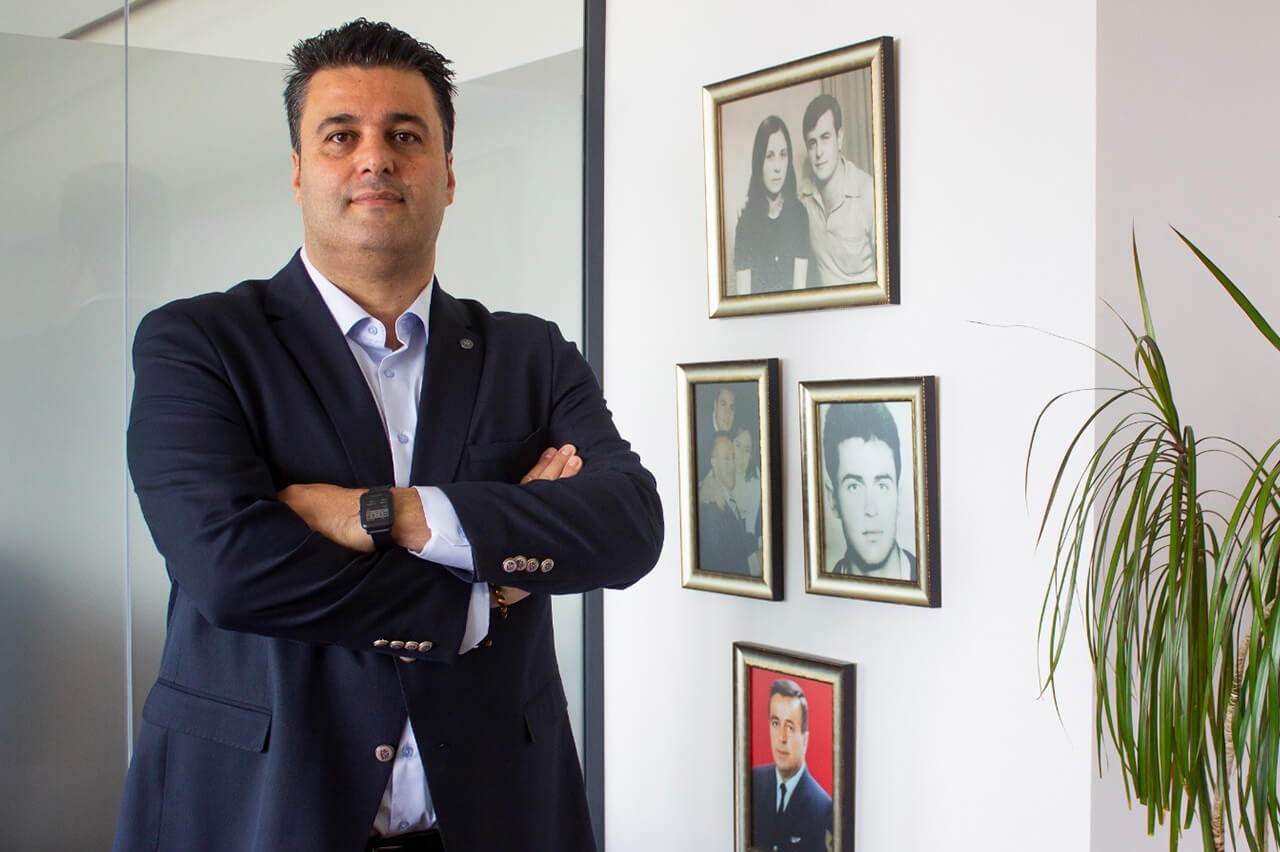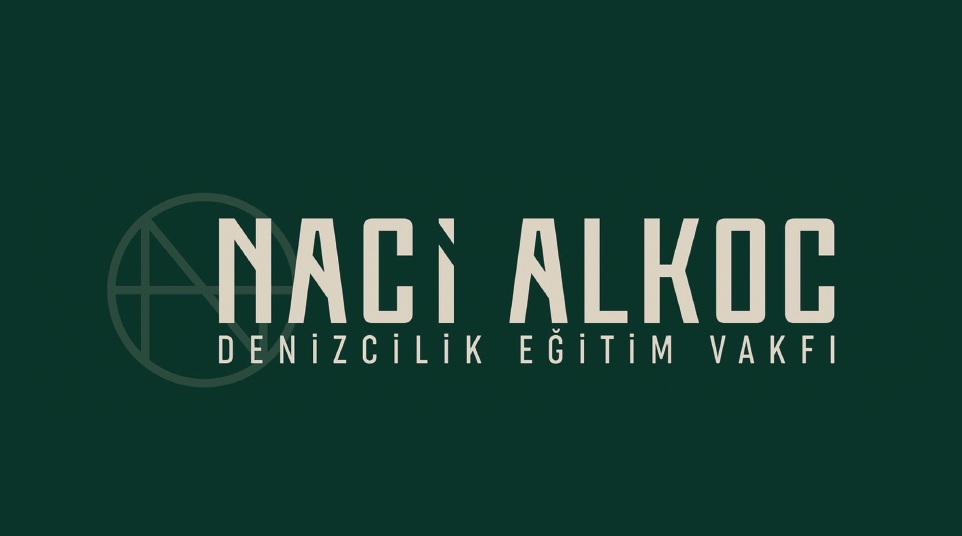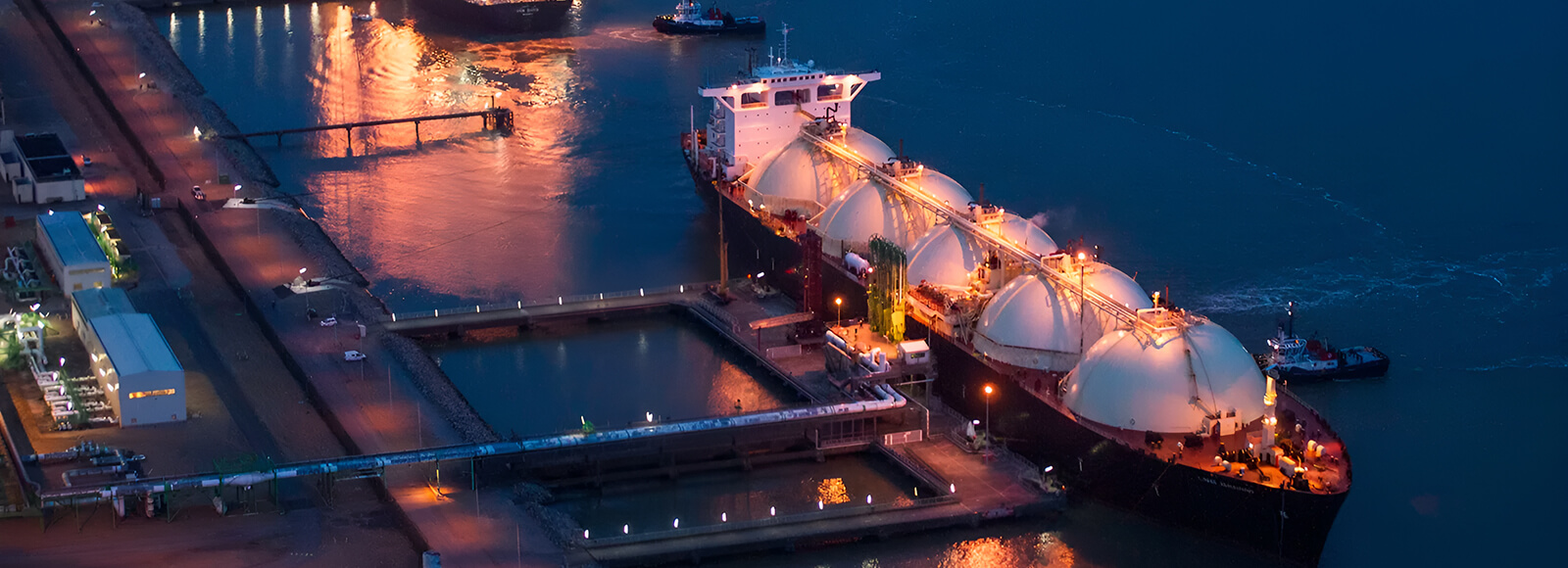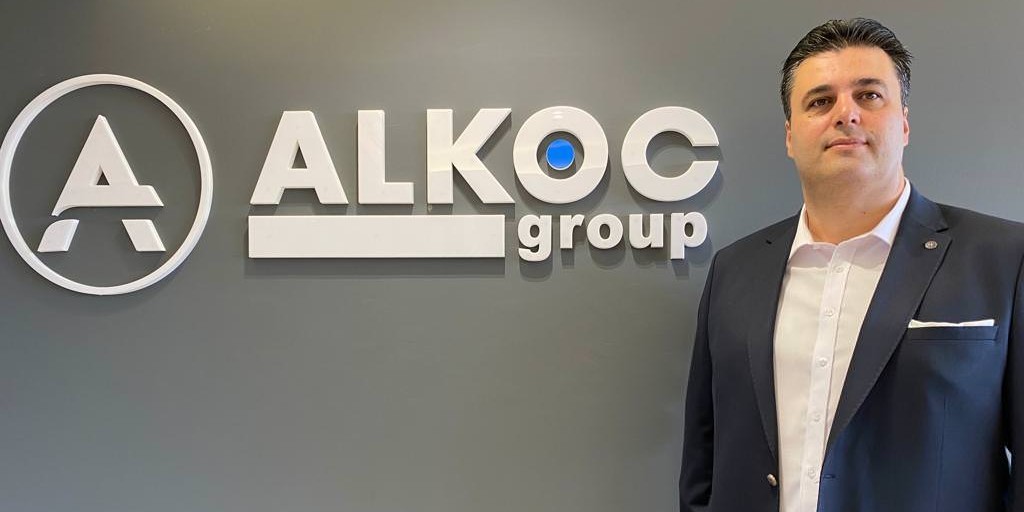Staying National and Independent Is Not Easy — But It’s Possible for Those Who Stay True
A business model proving that maritime is not limited to ship investment alone...
Burak ALKOÇ
Chairman of the Board, ALKOÇ GROUP
Alkoç Group stands as a strong example that maritime is more than just ship investment. With a broad vision extending from international shipping to education, from green transformation to social responsibility, Chairman of the Board Burak Alkoç is driving this transformation forward through the ALKSHIPS brand, which focuses on the European market. In this interview, we discuss the company’s strategic direction, its modern ship ownership philosophy, and its sustainable growth journey.
You frequently emphasize ALKSHIPS’ growth targets in the European market. What kind of structural or technological investments have you made in line with these goals?
We are particularly focused on full-box type, single-hold vessels of around 5,000 DWT with movable bulkheads, suitable for project cargo, below 3,000 GRT and 3,000 kW. These vessels are tailored for the European market, fly white flags, and are IACS classed. Additionally, we are exploring cooperation with Chinese financial institutions and a private fund to invest in geared vessels of around 15,000 DWT to serve the West Africa trade.
Your collaboration with Panama marked a significant step towards becoming a more visible global player. What are the concrete outcomes and future goals of this partnership?
Post-pandemic, remote training and working systems gained prominence. We are working on establishing a maritime training institution in Georgia, having received accreditations from Panama, Liberia, and now the Georgian government. Our aim is to fully complete the accreditation process and launch a comprehensive maritime academy by July. We plan to invite press members to witness the launch of this project, which reflects our deep commitment to education.
Which routes and cargo types are you focusing on in foreign markets? Which countries or ports are key to your expansion in Europe?
Due to the ongoing Ukraine-Russia conflict and trade sanctions in certain countries, coster freight rates remain under pressure. We’re currently focused on the Turkey–Europe corridor. Our primary cargo includes project shipments, construction materials, and essential goods.
How do you evaluate the competitiveness of Turkish-owned shipping companies in global maritime? Where does ALKSHIPS stand in this equation?
It’s a highly competitive environment. Turkish shipowners and seafarers still face logistical and legal hurdles. Despite efforts by NGOs for captains and chief engineers, issues like green passports and visa access remain problematic. We believe that greater collaboration and mutual support among Turkish companies is essential.

The Green Deal and sustainable maritime are at the top of the industry’s agenda. What is ALKSHIPS’ strategy for environmental sustainability and reducing carbon emissions?
Our agenda includes next-generation main engines with high fuel efficiency, low-friction coatings, vortex-reducing propeller technologies, and voyage/trim optimization systems. We also actively contribute to committees working on hydrogen fuels, alternative marine fuels, renewable energy, and green port initiatives.
Digitalization in maritime has accelerated in recent years. Could you share the digital systems you use in your fleet to enhance operational efficiency?
Our vessels are equipped with voyage tracking, unlimited VSAT internet access, and shaft torque meters that support voyage optimization. These technologies significantly improve our operational efficiency.
Do you have expansion plans beyond ship investments, such as logistics or port services? What is Alkoç Group’s long-term vision in this regard?
We are actively involved in freight forwarding and competitive brokerage. In addition, we are exploring opportunities in port services, shipyard operations, and dockside repair. In Poti, Georgia, we provide consultancy for the renewal of a strategically important floating dock and the development of shipyard maintenance services. We're also focusing on logistics projects in the Caspian Sea.
Human capital is a critical issue in the industry. What is ALKSHIPS’ approach to recruitment, training, and crew sustainability?
We offer both in-house training and refresher programs through partner institutions. With our maritime academy scheduled to open in July, we aim to train Turkish, Ukrainian, Georgian, Azerbaijani, and Indian seafarers through remote learning, classroom instruction, simulators, and hands-on field training. We assign nationalities to vessels based on ship type and match personnel through tailored training plans for optimal crew performance.
What are the core principles that have shaped ALKOÇ Group’s success story—especially as inspiration for young entrepreneurs and new-generation shipowners?
Staying national and independent is not an easy goal. It requires perseverance, honesty, and commitment to your principles. We believe that the Turkish people can lead in many fields when they set their minds to it. With this motivation, new achievements are always within reach.
Where do you envision ALKSHIPS in the next five years? Can you share a visionary outlook in terms of fleet size and market goals?
Rather than speculative ship investments, we prioritize acquiring the right vessel for the right cargo and economic conditions, treating investments as strategic tools. Considering financing costs and upcoming IMO milestones in 2030 and 2050 for greenhouse gas reduction, our vision is shaped by sustainability and regulatory readiness.

Finally, can you tell us about the Naci Alkoç Maritime Education Foundation?
We initially started our foundation activities by allocating the revenue from our restaurant and farm operations. Later, we set up a dedicated corporate budget to support students through scholarships. Over time, we shifted our focus to more direct-impact projects, such as building shelters for stray animals, where we saw greater emotional and social returns.
We also continue to support families of seafarers who have lost loved ones. We've donated educational vessels, yachts, electric vehicles, equipment, and containers to various maritime high schools and universities. Institutions like ITU have also received different forms of support from us.
During earthquakes, we sent relief containers to Adıyaman and Hatay. In conflict zones, we drilled clean water wells and organized iftar meals. All of these efforts reflect our foundation’s deep commitment to social responsibility.

